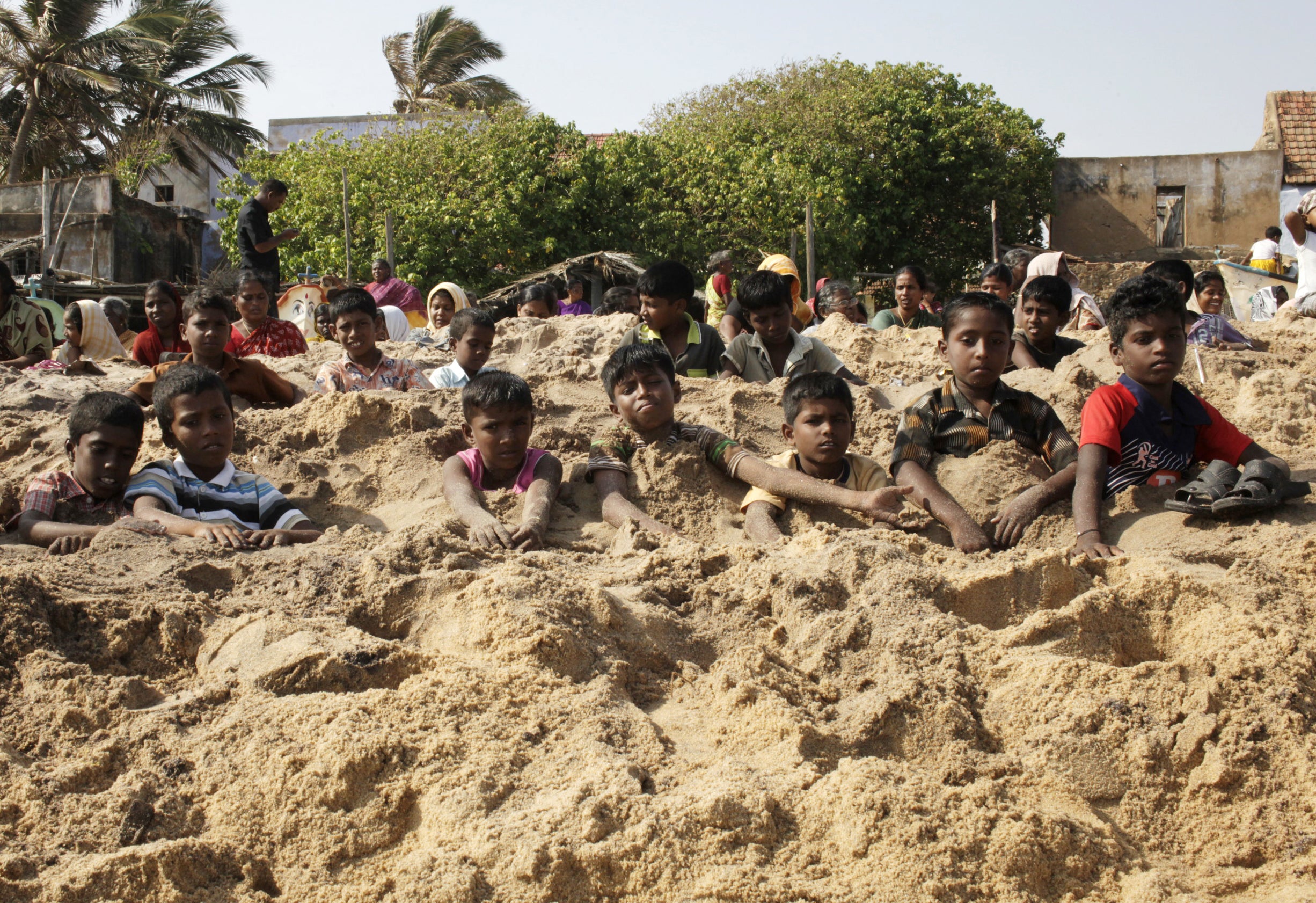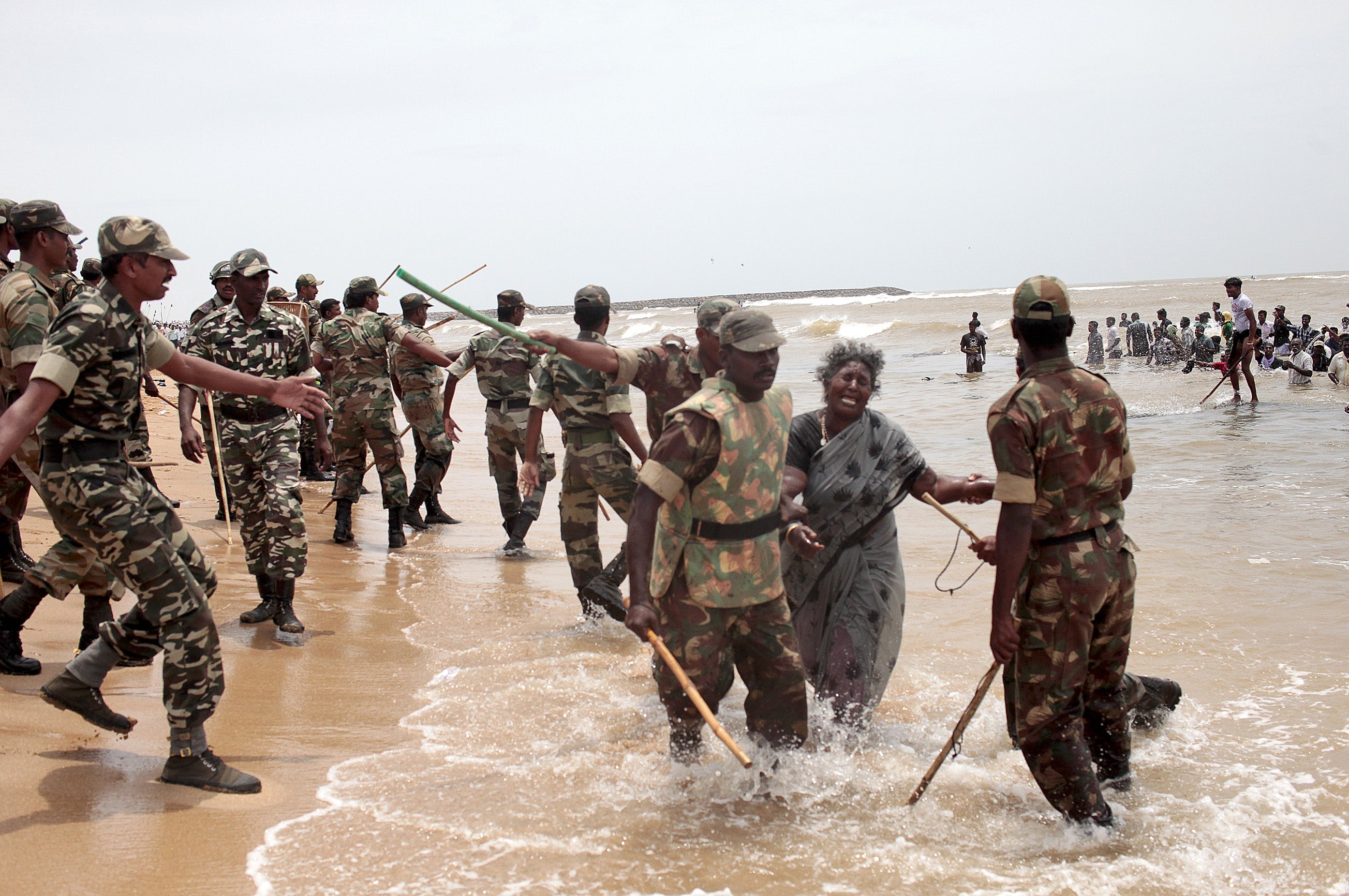Oscar-nominated Australian filmmaker David Bradbury refused entry to India
Filmmaker suspects he was detained and deported for documenting protests against a nuclear power plant in southern India over a decade ago
Australian documentary filmmaker David Bradbury was detained at an airport in India while travelling with his children earlier this month and refused entry to the country.
The director says he was stopped and questioned about a documentary he made in India more than a decade ago, before eventually being deported.
Mr Bradbury, 73, landed at the Chennai airport in southern Tamil Nadu state on 10 September with his children Nakeita and Omar. The family intended to take a two-week trip across India, with plans to visit five tourist destinations.
“I wanted to show my son Omar how Hindus deal with death and say farewell to their loved ones in the next life,” the filmmaker told The Wire.
Mr Bradbury’s wife, Treena Lenthall, an activist and filmmaker, died of cancer five months ago.
Mr Bradbury started working as a radio journalist for ABC in 1972 and went on to make several acclaimed documentary films. He has been twice nominated for an Oscar—in 1987 for his film on Pinochet’s Chile, Chile Hasta Quando? and in 1981 for Front Line, a profile of Tasmanian-born combat cameraman Neil Davis.
Speaking to The News Minute, Mr Bradbury described being pulled aside at the Chennai airport, being held in a room with “a single bed, mattress, no sheets, or blanket”, and being refused when he asked to contact the Australian embassy.
Naketia, 21, and Omar, 14, were allowed through.
Describing the room, he said there was “rubbish on the floor and a metal grill on the door, which had a view out to a wall beyond. I was allowed to go to the toilet up the corridor, but there was one time when, despite my calling out, they didn’t come back to let me out. So I was obliged to relieve my bladder into a paper cup I found on the floor,” he said.
He was denied access to his medication and warmer clothes, he added, and his request to contact the embassy was ignored.
Mr Bradbury said the interrogators asked him to unlock his phone and provide details of his contacts in India, but he refused.
The Independent has contacted Mr Bradbury as well as India’s home ministry for comment.
Mr Bradbury said that he was asked about the purpose of his current visit and to explain his first visit to the country in 2012.
That 2012 visit is the reason Mr Bradbury believes he was stopped and questioned.
The filmmaker was a member of the jury for the Mumbai International Film Festival in 2012. After his obligations at the festival ended, Mr Bradbury travelled to Idinthakarai, a coastal village in Tamil Nadu, with Lenthall and then three-year-old Omar.
The village is near the Kudankulam Nuclear Power Plant, and Mr Bradbury stayed for over two weeks to document ongoing protests against the project. The protests centred around concerns of local villagers over the long-term impacts of the plant, especially in light of the 2011 Fukushima nuclear disaster in Japan.

Detailing what he had seen and faced, Mr Bradbury wrote in 2013: “I watched as Leon the fisherman rubbed ‘440 days’ off the whiteboard and added a ‘1’ to it. For 441 days the people of Idinthakarai have resisted the dictates of the Centre Government 3000km away in New Delhi to incorporate their village into the grand scheme of things.”
“In the last raid, the police lathi charged (with bamboo sticks) peaceful protestors and beat everyone in their path who could not flee fast enough: children, the crippled, women, old men and women. One fisherman was shot dead.”
“I’ve just been informed 30 people including the woman who helped me get to Idinthakarai have been arrested and detained by Tamil Nadu police…They are ordinary people like you and me. The police couldn’t get away with putting me in gaol, but they can do this to their own people.”
Questions about this trip at the airport have led Mr Bradbury to conclude that his detention and subsequent deportation were related to his role in documenting the protests.
“I told them I was just doing my job, like they are now interrogating me. It was important for me to see the people of Idinthakarai learn why they were so determined in their struggle against the Union government in Delhi and the state government in Chennai that six nuclear power plants were being built. I told the interrogating officers that if India was truly a democracy, it should value the rights of the media to have access to marginalised people and tell their side of the story,” Mr Bradbury said.

“I told the two officers that I agreed with the people of Idinthakarai that it was ‘madness’ to build one, let alone six nuclear reactors, on a major earthquake faultline that had swept one thousand locals to their deaths in the tsunami of 2004.”
After Mr Bradbury was detained, his children decided to continue on their trip.
They said Indian police allowed them to speak to Mr Bradbury only across a barricade and tried to convince them to ask their father to return to Bangkok, where the three had come from.
“They kept asking us to convince our father to return to Bangkok. We just refused,” they said.
Mr Bradbury was deported to Thailand and planned to join his children in Milan, which was where they were meant to go after their trip in India. His children reportedly left India on 26 September.
Join our commenting forum
Join thought-provoking conversations, follow other Independent readers and see their replies
Comments
Bookmark popover
Removed from bookmarks